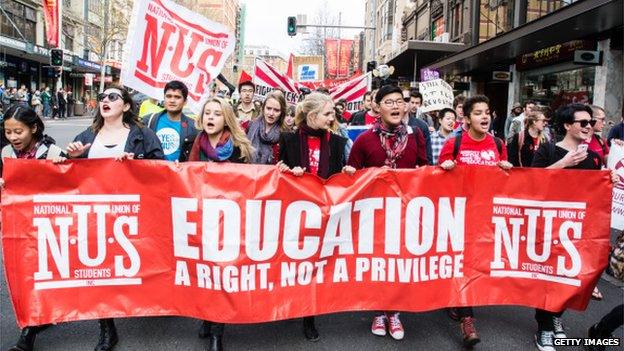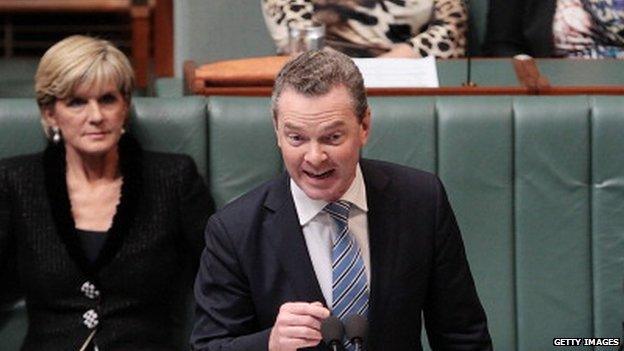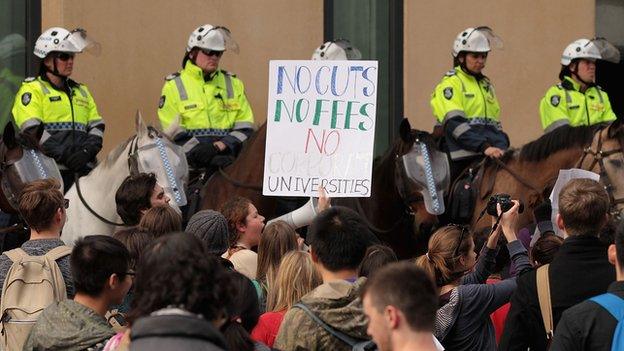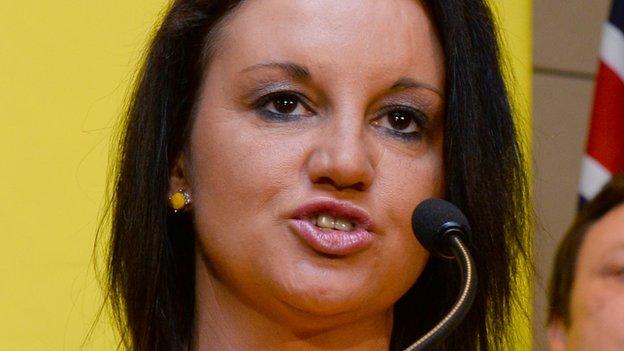Australia ministers submit new higher education bill
- Published

The government's proposals have been opposed by many students in Australia
The Australian government has been forced to introduce a new package of university reforms after its initial bill was decisively rejected.
Senators voted against the higher education reform bill on Tuesday night by 33 votes to 31.
The legislation would have cut university funding by 20% and allowed institutions to set their own fees.
The reforms are the biggest changes to the sector since the introduction of higher education fees 25 years ago.
Ministers say they will now introduce new legislation that will be "nine tenths of the previous bill".
Students who attend Australian universities are charged higher education (HECs) fees, although government loans and subsidies are in place to relieve the costs for some.
The new bill was introduced on Wednesday, but Education Minister Christopher Pyne told a press conference it would not be debated until next year when parliament resumes.
Instead of applying the ten year government bond rate to student loans, ministers will now seek to apply an interest rate equal to the nation's inflation rate.
The government also wants to establish what it has described as a university transition fund worth about A$100m ($84.6m; £54m) and create a new scholarship scheme to support disadvantaged and rural and regional students.
New parents will also be given more time to pay back their university fees.
Mr Pyne said he was confident the cross benchers would support the new bill, adding: "We had a defeat this week and I don't think there is any shame in that at all."
He said the Opposition Labor Party's campaign claiming students would struggle to pay back huge debts would "totally be obliterated".

Education Minister Christopher Pyne says the bill is needed to maintain standards
The government's failure to convince cross bench senators to pass the bill is its biggest failure so far in a tough legislative term, which ends on Thursday.
Cross bench senators have also blocked the government's attempts to unwind regulations that critics say potentially exposed consumers to bad financial advice.
Independent senator Jacqui Lambie has threatened to vote against all government legislation unless ministers agree to a pay rise for Defence Force personnel that is in line with inflation.
David Leyonhjelm, a senator from the Liberal Democratic Party, has also vowed to block legislation if MPs are not allowed to properly debate his same-sex marriage bill.
Mr Leyonhjelm last month introduced a bill that would amend the Marriage Act to allow weddings between same-sex couples, transgender and intersex Australians.
- Published28 October 2014

- Published24 November 2014

- Published27 November 2014
